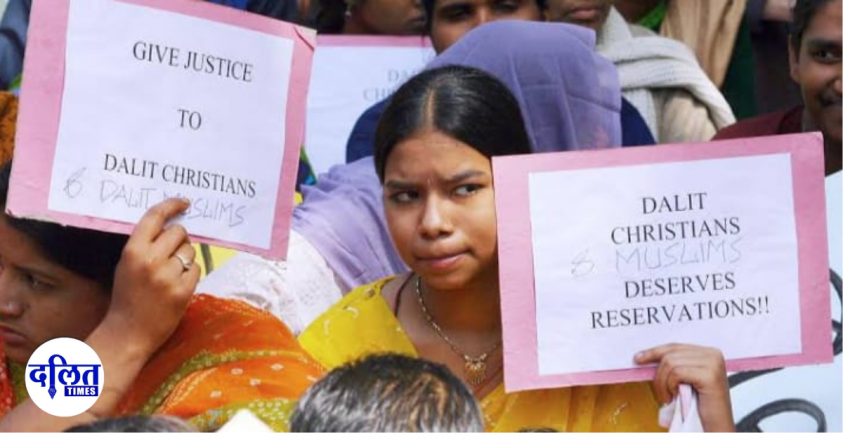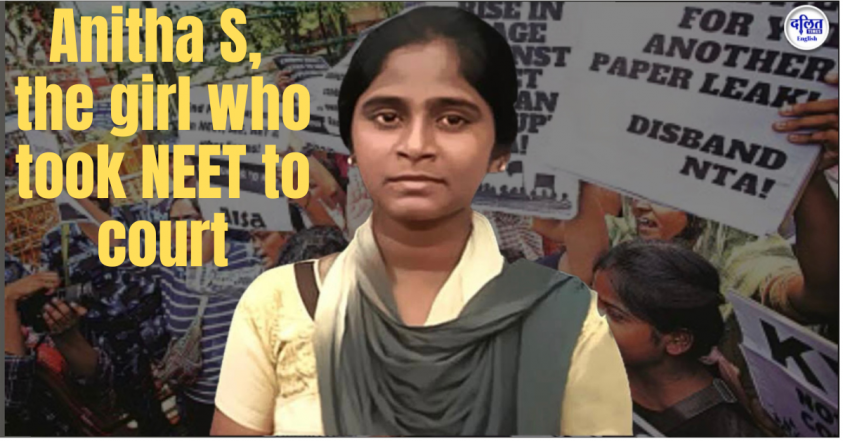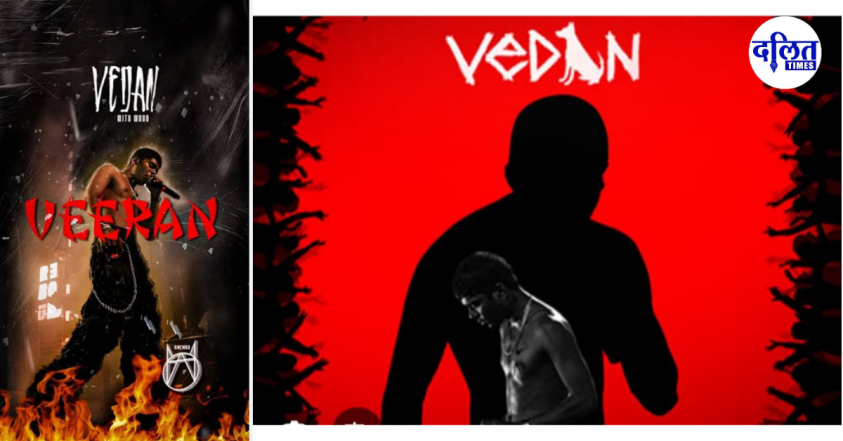Milind Kamble a civil Engineer from Pune laid the foundation for a historic movement on 14th April 2005 that would reshape the socio-economic landscape of India’s Dalit community. The Dalit Indian Chamber of Commerce and Industry (DICCI) was not just an organization—it was a vision. A bold declaration that Dalits need not merely seek jobs in an economy rigged against them, but could build businesses, generate employment, and create capital. In Kamble’s words, they would become “Job Givers, Not Job Seekers.”
The Politics of Enterprise
At its core, DICCI is a radical political project cloaked in the language of business. Its motto—“Fight Caste with Capital”—disrupts a centuries-old caste economy built on exclusion and structural inequality. Dalit entrepreneurship has historically been hindered by systemic denial of access to land, capital, and markets. DICCI directly confronts these barriers by creating a platform for Dalit entrepreneurs to organize, expand, and escape the cycle of socio-economic dependency.
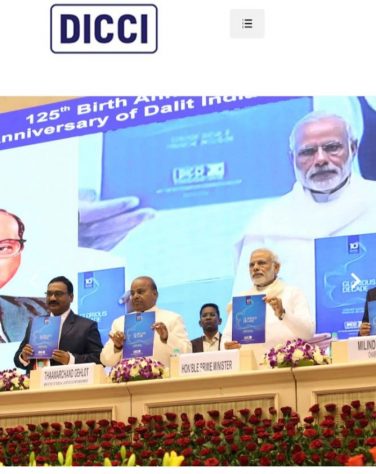
What began as a modest initiative by Kamble and a few entrepreneurs has evolved into a robust network with 29 state chapters, 7 international chapters, and a growing membership base. Among its prominent members are Kalpana Saroj, Chandra Bhan Prasad, and Rajesh Saraiya—each a testament to defiance and success against overwhelming odds.
Also Read: Stacks of Shame: Impeachment Motion Against Justice Varma Signals a Historic Legal Reckoning
Enterprise Against Exclusion
DICCI’s strength lies in the breadth and diversity of its members. They span sectors such as chemicals, agriculture, plastics, metallurgy, textiles, pest control, hospitality, healthcare, solar energy, education, and international trade. This is not just about representation—it is about participation in shaping India’s economic future.
Since its first national trade fair in 2011—attended by industry stalwarts like Ratan Tata and Adi Godrej—DICCI has steadily expanded the boundaries of Dalit representation in economic forums. The 2015 DICCI Industrial and Trade Expo in Hyderabad saw over 350 SC/ST entrepreneurs participate, prompting Telangana CM K. Chandrashekar Rao to allocate one acre of land and ₹5 crore for a Dalit entrepreneurship incubation centre.
A Movement of Capital and Consciousness
DICCI has undertaken several transformative initiatives, including:
- A ₹500 crore venture capital fund (2013) to boost SC/ST enterprises, with SIDBI pledging an initial ₹10 crore.
- IGNITE 2016, a Dalit-focused entrepreneurship development programme.
- A technology partnership with Delhi Jal Board (2019) to eliminate manual scavenging by employing 189 Dalit contractors—a project now under threat due to non-payment of ₹16 crore by the government.
- MoUs with Dr. Ambedkar International Centre (2019) and TRIFED (2021) to promote research, policy engagement, and tribal entrepreneurship.
- The SC/ST Mega Business Conclave (2022) in Bhopal and a strategic partnership with Youth20 (2023), establishing DICCI as a key stakeholder in G20 engagements.
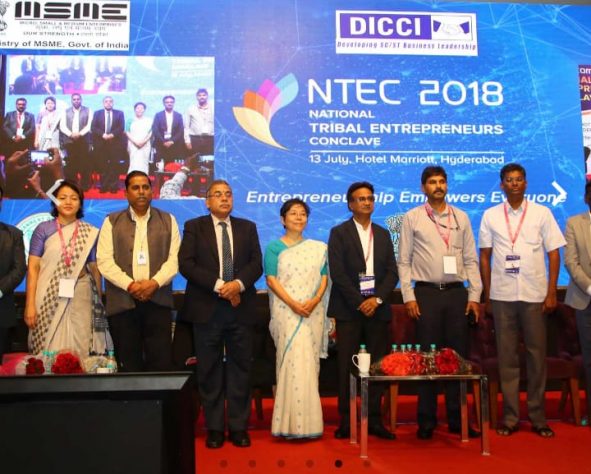
Also Read: Justice for Nilesh Rathod: Another Dalit Life Lost to Caste Hatred in Gujarat
The Struggles of Structural Change
Despite its achievements, DICCI faces significant challenges:
- Access to capital: Traditional financial institutions demand collateral—an insurmountable hurdle for many Dalit entrepreneurs due to historical landlessness and asset deprivation.
- Lack of professional mentorship: A deep knowledge gap persists around financial planning, scaling operations, and navigating government schemes.
- Entrepreneurial Development Programmes (EDPs): There is a pressing need for inclusive, professionally-run EDPs that connect Dalits with broader business ecosystems—without isolating them or reinforcing ghettoization.
DICCI operates with a three-fold mandate:
- Bring together all Dalit entrepreneurs under one umbrella.
- Serve as a one-stop resource center for existing and aspiring Dalit entrepreneurs.
- Promote entrepreneurship among Dalits as a sustainable solution to their socio-economic challenges.
Vision, Mission, and the Road Ahead
DICCI’s vision is “Developing Business Leadership.” Its mission is to inspire Dalit youth to enter business as a pathway to self-determination and dignity. Its foundational aim—“Fight Caste with Capital”—is not merely economic; it is revolutionary.
 Milind Kamble, now widely recognized for his pioneering leadership, was conferred the Padma Shri in 2013 and awarded an Honorary Doctorate (D.Sc. Honoris Causa) by Babasaheb Bhimrao Ambedkar University, Lucknow. His leadership symbolizes a new generation of Dalit thinkers and doers reclaiming capital and policy as tools of structural change.
Milind Kamble, now widely recognized for his pioneering leadership, was conferred the Padma Shri in 2013 and awarded an Honorary Doctorate (D.Sc. Honoris Causa) by Babasaheb Bhimrao Ambedkar University, Lucknow. His leadership symbolizes a new generation of Dalit thinkers and doers reclaiming capital and policy as tools of structural change.Capital as a Tool of Liberation
DICCI’s model rejects the false dichotomy between social justice and economic growth. By asserting a Dalit presence in India’s business landscape, it undermines the Savarna monopoly over capital and policy influence. It compels the state and private sector to recognize Dalits not as passive recipients of charity, but as active partners in growth.
Dalit capitalism is not a contradiction—it is a necessity. In a society that has long denied the oppressed access to capital, DICCI is building more than enterprises—it is constructing an alternative imagination of India, where caste no longer determines the ceiling of ambition.
Challenges for DICCI: Mapping the Roadblocks
Looking ahead, DICCI must navigate several persistent obstacles in fostering entrepreneurship within the community:
- A) Availability of early-stage funding
The legacy model of collateral-based lending by financial institutions creates an exclusionary entry barrier for Dalit entrepreneurs. Due to historical deprivation, they seldom possess assets to offer as collateral. While a venture capital mechanism tailored for early-stage funding is ideal, its feasibility remains uncertain. - B) Creating inclusive yet professional EDPs
There is a need to establish professionally-run Entrepreneurial Development Programs that do not exclusively target Dalits. This ensures that Dalit entrepreneurs expand their professional networks without being confined to isolated ecosystems. - C) Access to professional growth capital
Efforts must be made to create or access professional investment funds that can support Dalit enterprises poised for expansion.
A critical challenge remains: how can DICCI and its members be equipped with benchmarks for accessing capital, identifying pitfalls, and finding appropriate mentoring? A significant knowledge gap persists around the complexities, risks, and potential within the financial sector.
By navigating these challenges with clarity and conviction, DICCI can continue its transformative work—not only enabling Dalits to fight caste with capital, but to build a future of dignity, equity, and leadership.
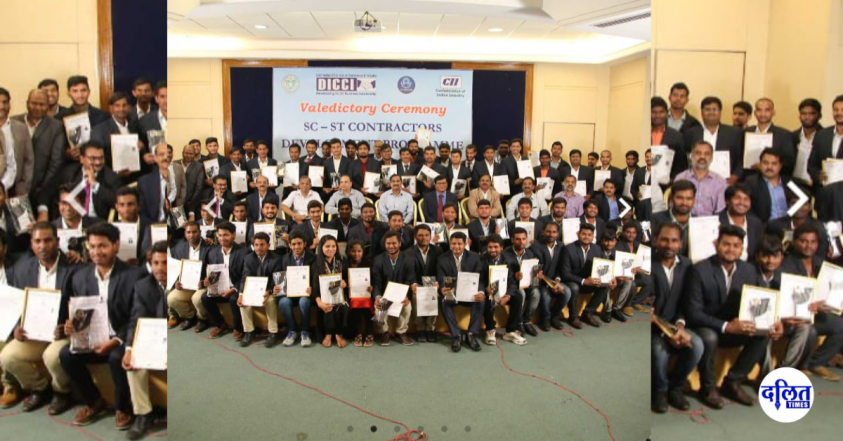
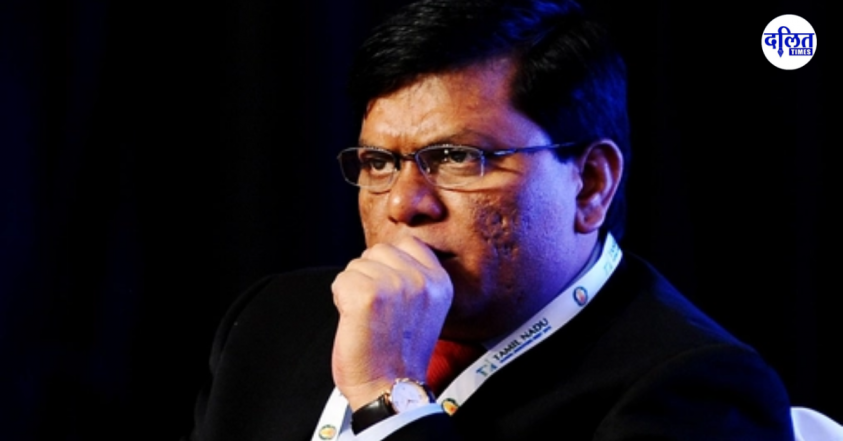 Milind Kamble, now widely recognized for his pioneering leadership, was conferred the Padma Shri in 2013 and awarded an Honorary Doctorate (D.Sc. Honoris Causa) by Babasaheb Bhimrao Ambedkar University, Lucknow. His leadership symbolizes a new generation of Dalit thinkers and doers reclaiming capital and policy as tools of structural change.
Milind Kamble, now widely recognized for his pioneering leadership, was conferred the Padma Shri in 2013 and awarded an Honorary Doctorate (D.Sc. Honoris Causa) by Babasaheb Bhimrao Ambedkar University, Lucknow. His leadership symbolizes a new generation of Dalit thinkers and doers reclaiming capital and policy as tools of structural change.